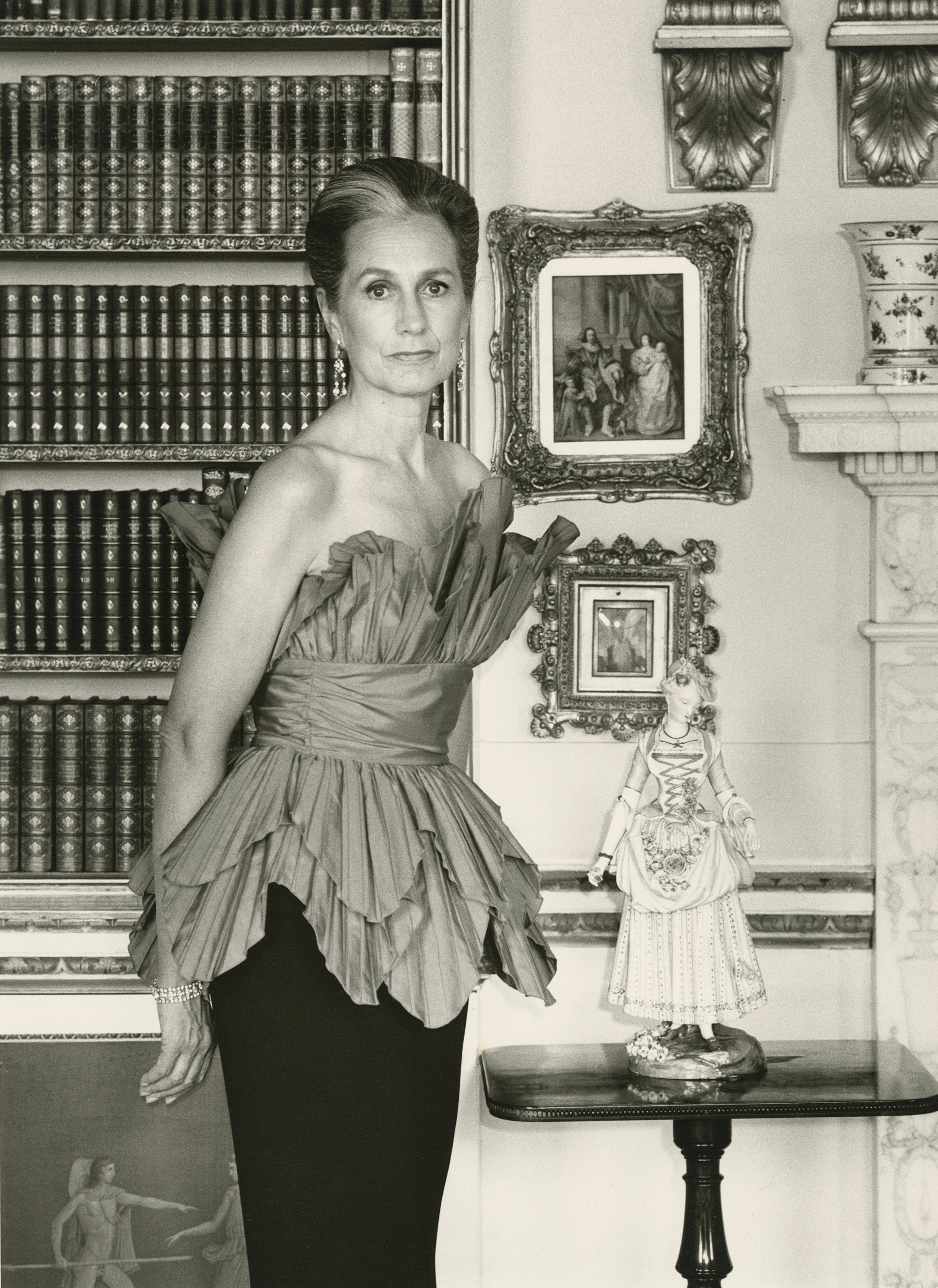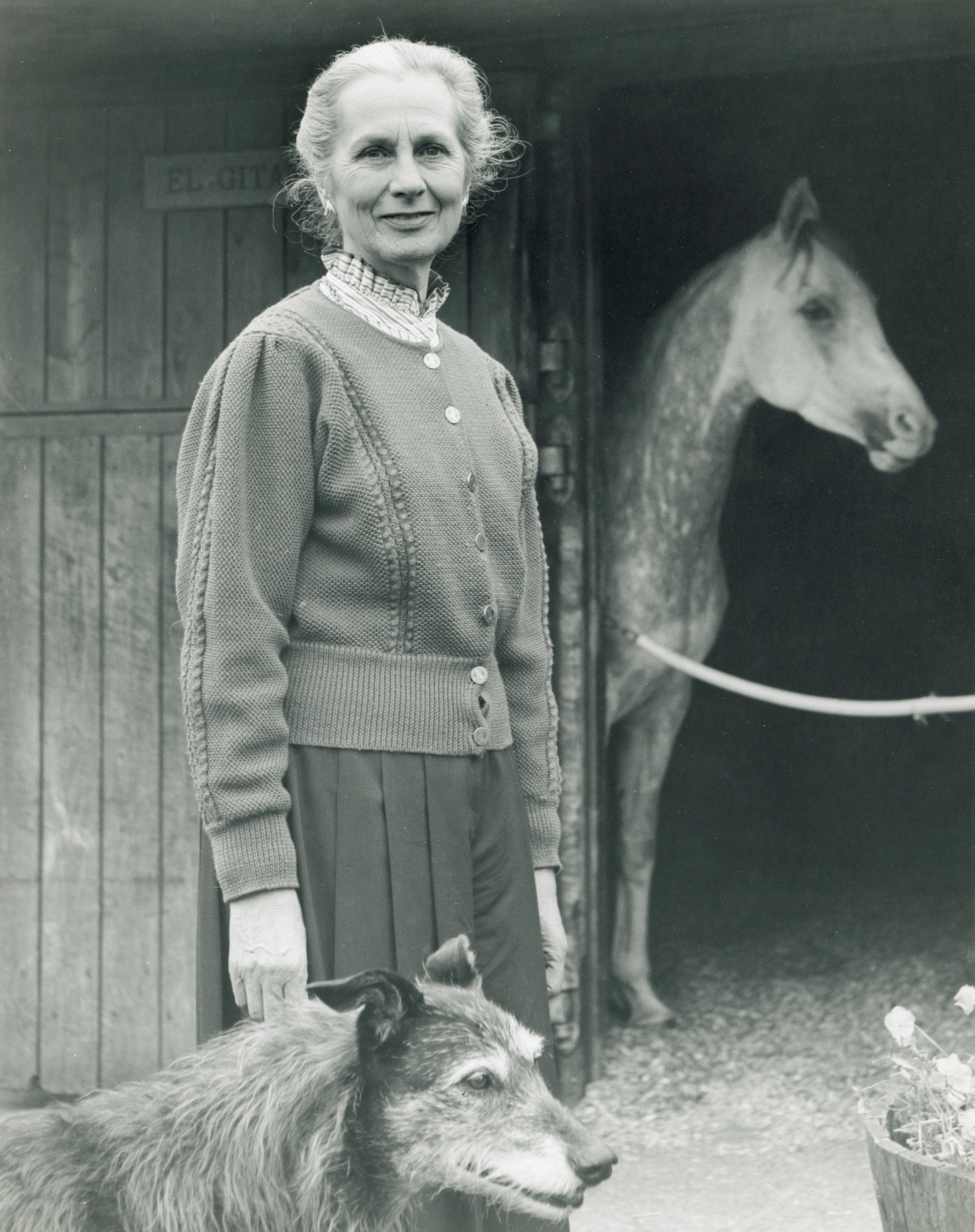How Goodwood’s last duchess was chased down the street for creating the first multiracial aristocratic family
Susan, the 10th Duchess of Richmond and Gordon, was a campaigner on racial equality and unlikely trailblazer for social change from the stately splendour of Goodwood, writes Mark Mowbray

There could hardly be a more unlikely social campaigner for racial equality than the modest woman in a straw hat seated in a corner of the Duke’s Box at Glorious Goodwood, the celebrated race track on the Sussex Downs.
Yet for a few years she was attacked by the press and viewed as an unwelcome figure of controversy for her dangerously liberal views on race. Susan, Duchess of Richmond and Gordon, who died on 13 June aged 90, had married into the upper echelons of the aristocracy, but her legacy is as a significant campaigner on racial integration and tolerance.
In the early Sixties, the duchess was chased down the street by angry bigots and chastised by most of the English newspapers, outraged that she had adopted two half-African children.
It was the first time a member of the aristocracy had so publicly embraced multiracialism into the heart of their own family – and it made her an unlikely trailblazer, launched from the stately splendour of Goodwood.
Her quiet, unassuming nature made her easy to miss in her later years at the races, especially alongside star guests like Tom Cruise, Bryan Ferry, Jeremy Clarkson and Lord Snowdon. She was a shy and modest woman at social events, yet for many years was chatelaine of Goodwood as the 10th Duchess of Richmond and Gordon.

In the 1960s she and her husband, the 10th duke, attracted the deep disapproval of their own parents after they had adopted two babies, Maria and Naomi, from the Church of England Children’s Society. It was a time when attitudes to race in Britain were often bigoted and extreme.
But Susan and her husband Charles both felt that it was crucial to change attitudes to race in Britain and their adoption was a loving gesture as well as a political one, which they did publicly and courageously. She was most affected in her views by a chance meeting with Edith Buxton, who was part of a group that campaigned for racial equality.
Born Susan Morrison-Bell, she was for decades a modest presence at Glorious Goodwood. Home for this quiet revolutionary was the 18th century stately home, which is also the heart of horse racing and motor racing in the English social season.
The full story of fighting racial prejudice by this soldier’s daughter from the Cotswolds was usually only known by the persistently curious, as Susan Richmond was always defined by her modesty. She preferred to stay out of the limelight having had more than her fair share of controversy and conflict in previous years when she was a fearless social campaigner.
It was in 1968 that she and her husband took on Goodwood House and the estate, which had been virtually mothballed since the war, and opened it up for horse racing and motor racing once or twice a year.
The house had been a hospital during the Second World War. The couple tried to persuade the National Trust to take it on but they would not take charge of it without a huge endowment.

It was instead left to the Richmonds to take on the draughty decaying house and to find a way to preserve and make it thrive. Today it is a huge business employing hundreds of people with racing and motor cars as well as hospitality, and health and wellbeing. She helped pioneer Goodwood as a dressage centre and the first European Dressage Championships were held there in 1987.
She was also a pioneer in health and wellbeing, embracing causes that were not usually aligned with those running stately homes. She was Patron of Compassion in World Farming and British Hen Welfare, and instrumental in making Goodwood completely organic.
The duchess was a devoted grandmother and great-grandmother. Glorious Goodwood will be sadder without her modest presence this year but her pioneering work in making people accept a more tolerant and open-minded approach to race and racing, farming and families, is a proud legacy.






Join our commenting forum
Join thought-provoking conversations, follow other Independent readers and see their replies
Comments